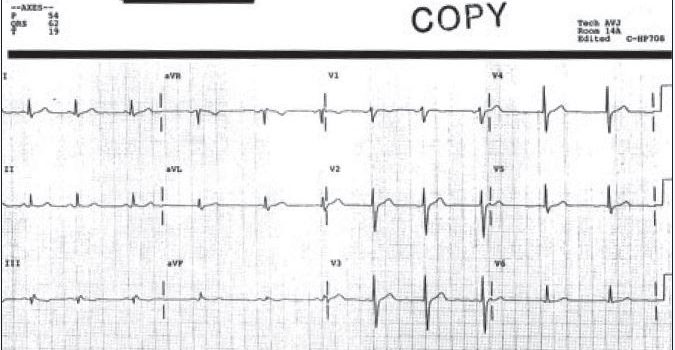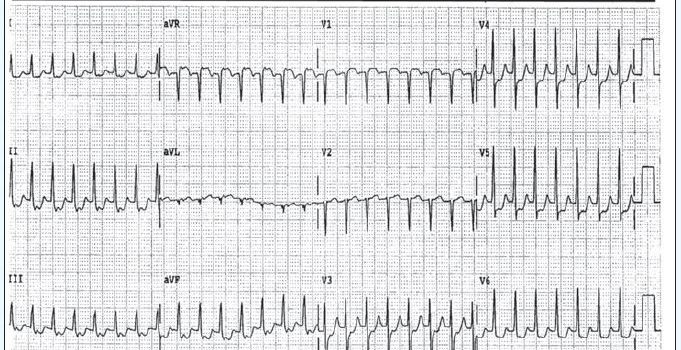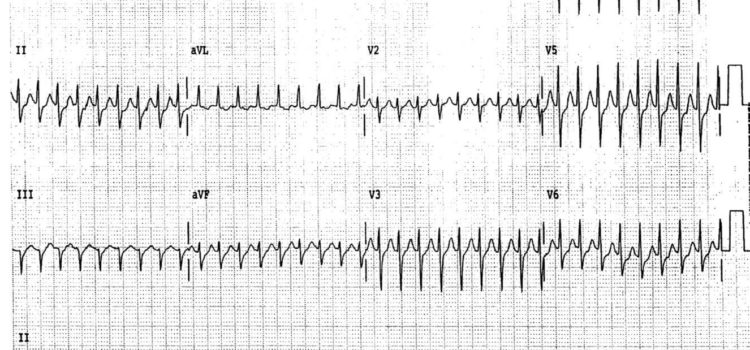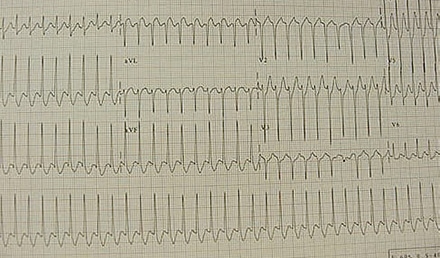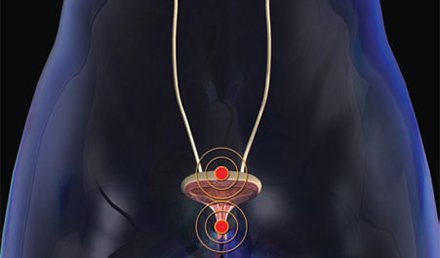The patient is a 26-year-old man who presents after 3 days of palpitations. He denies any chest pain, shortness of breath, diaphoresis, fever, or dizziness. He does use home oxygen (2 L/min), but denies any new shortness of breath. Upon exam, you find: General: Alert and oriented X 3 Lungs: Clear to auscultation bilaterally Cardiovascular: Regular and tachycardic without murmur, rub, or gallop Abdomen: Soft and nontender without rigidity, rebound, or guarding Extremities: No pain …
Read More